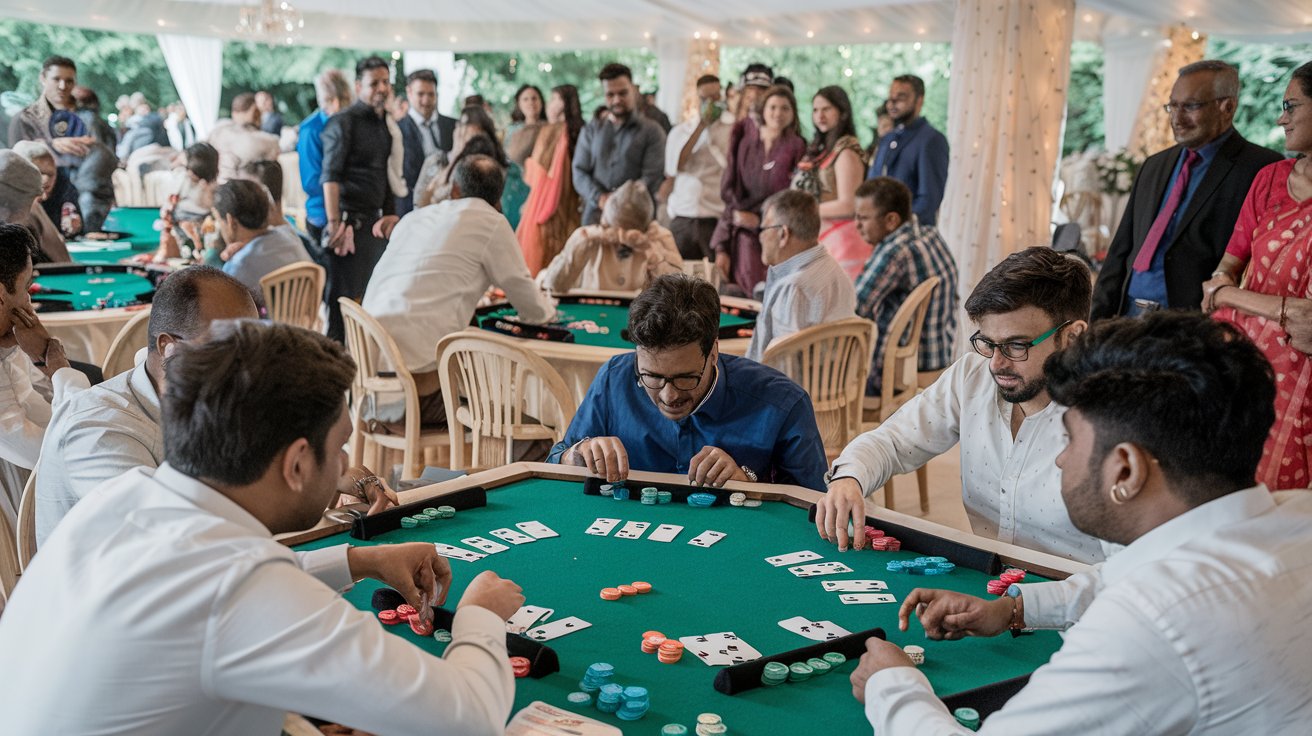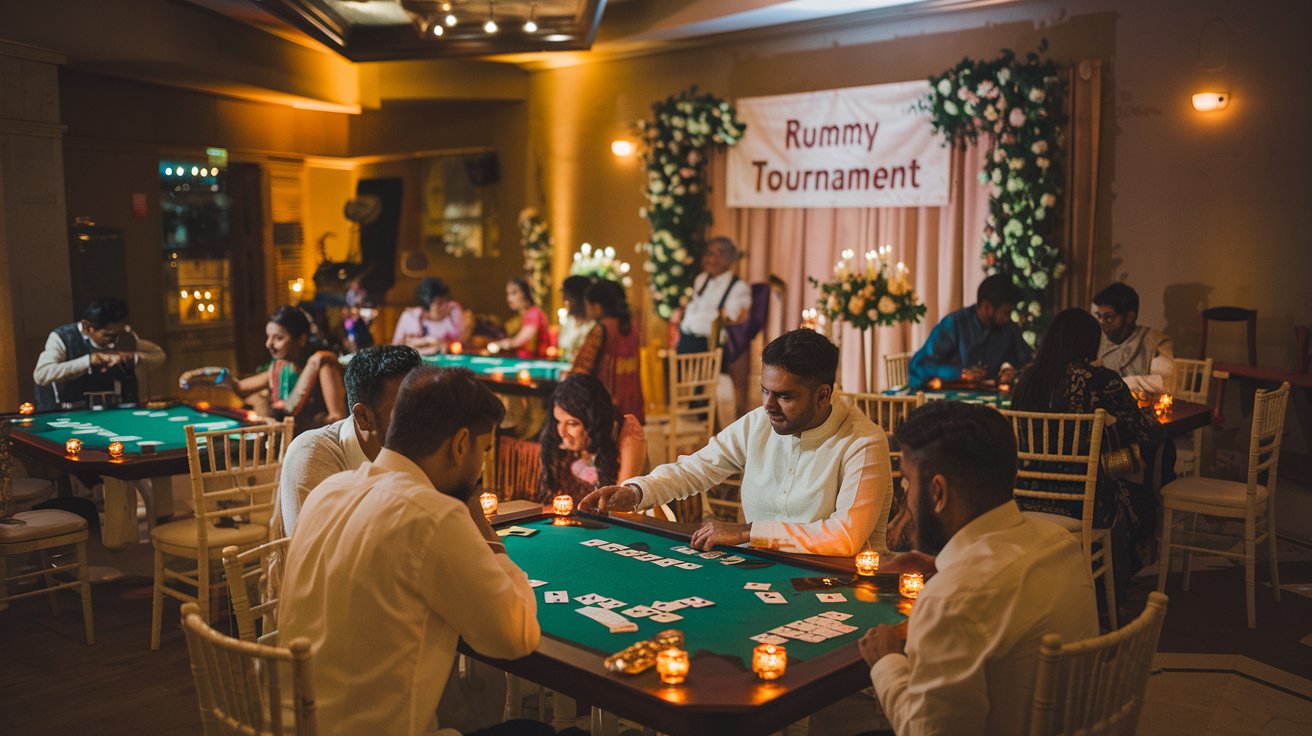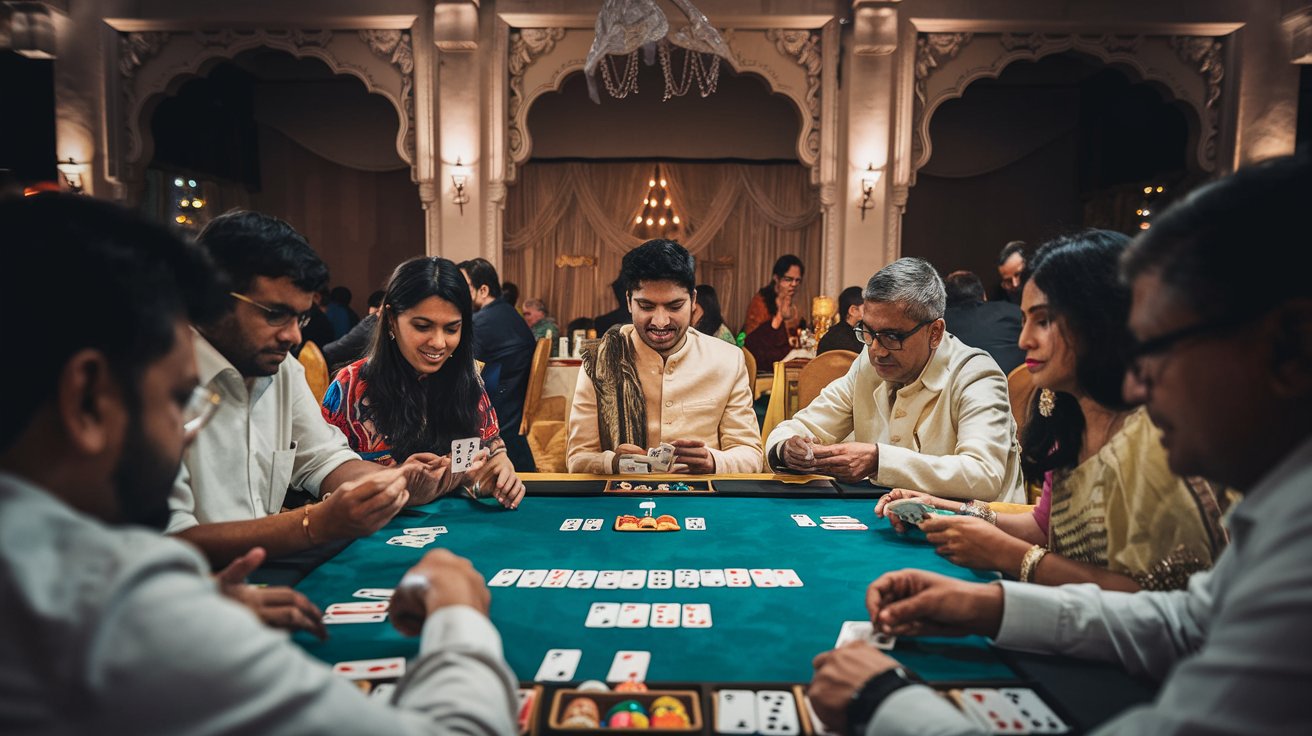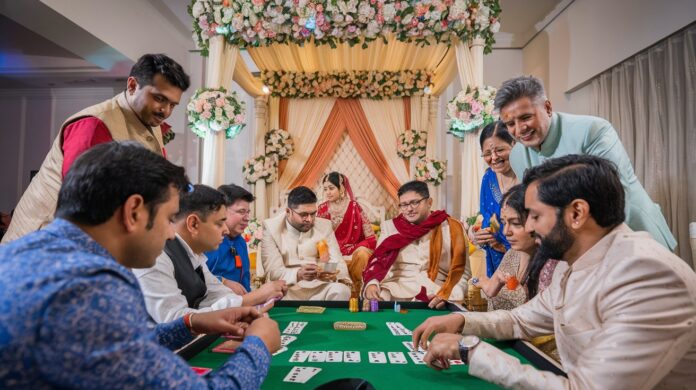Indian weddings and gatherings are synonymous with joy, celebration, and togetherness. From vibrant rituals to sumptuous feasts, these occasions bring families and friends closer, creating memories that last a lifetime. Amidst the music, dance, and laughter, one activity quietly weaves its way into the fabric of these events—rummy. This classic card game has emerged as a beloved pastime, adding an extra layer of fun and camaraderie to Indian weddings and social gatherings. But what makes rummy so special in these settings? Let’s dive into its cultural significance, its role in fostering bonds, and why it’s more than just a game in the Indian context.
The Cultural Charm of Rummy in India
Rummy isn’t just a card game in India—it’s a tradition steeped in nostalgia and social connection. While its origins may trace back to Western influences, rummy has been wholeheartedly embraced by Indians, blending seamlessly into the country’s rich tapestry of customs and entertainment. Whether it’s a lively wedding sangeet, a cozy family get-together, or a festive Diwali party, rummy finds its place as a go-to activity that transcends generations.
In a country where community and relationships are paramount, rummy serves as a perfect icebreaker. It’s simple enough for beginners to learn yet strategic enough to keep seasoned players engaged. This versatility makes it an ideal fit for the diverse crowds that Indian weddings and gatherings attract—from playful teenagers to wise grandparents, everyone can join in.
Why Rummy Shines at Indian Weddings

Indian weddings are grand affairs, often spanning several days with pre-wedding ceremonies like mehndi, haldi, and sangeet, followed by the main event and a reception. Amid the whirlwind of rituals and festivities, guests often find moments of downtime. This is where rummy steps in, transforming idle hours into bursts of excitement and laughter.
1. A Break from the Chaos
Weddings can be overwhelming, with constant activity and a flurry of emotions. Rummy offers a welcome respite—a chance to sit down, relax, and enjoy a light-hearted game. Picture this: a group of cousins gathered around a table in the bride’s home, cards in hand, teasing each other over who’s bluffing and who’s got the winning meld. It’s these small moments that make rummy a stress-buster and a mood-lifter.
2. Bridging the Generation Gap
One of rummy’s greatest strengths is its universal appeal. At a wedding, you might see an uncle teaching his young niece the rules of the game, or a grandmother outsmarting her tech-savvy grandson with a clever move. This intergenerational bonding is a hallmark of Indian culture, and rummy amplifies it by providing a shared activity that everyone can enjoy, regardless of age or background.
3. A Tradition of Friendly Competition
Indian weddings are filled with playful rivalries—think dance-offs or debates over whose ladoos taste better. Rummy fits right into this spirit of friendly competition. Whether it’s a quick round of 13-card rummy or a more intense game of points rummy, the stakes (often just bragging rights or a handful of sweets) add a thrill that keeps players coming back for more.
Rummy at Family Gatherings: A Staple of Togetherness

Beyond weddings, rummy holds a special place in everyday Indian family gatherings. Be it a rainy afternoon during the monsoon, a festive evening during Diwali, or a casual weekend reunion, the sound of shuffling cards is a familiar one in many households.
1. Strengthening Family Ties
In a fast-paced world where digital screens often dominate leisure time, rummy brings people back to the table—literally. It encourages face-to-face interaction, storytelling, and laughter. For many families, it’s a ritual passed down through generations, with parents teaching their children the same tricks they learned from their own elders.
2. Affordable Entertainment
Unlike expensive outings or elaborate games, rummy requires nothing more than a deck of cards and a willingness to play. This accessibility makes it a favorite in both urban apartments and rural homes, ensuring that no one is left out of the fun.
3. A Game for Every Occasion
From celebrating a promotion to unwinding after a long day, rummy adapts to the mood of the gathering. During festivals like Diwali, it often takes on a playful gambling twist, with small bets of coins or snacks adding to the festive cheer (though always in good fun and within legal limits!).
The Evolution of Rummy: From Tables to Smartphones
While the traditional charm of rummy lies in its physical form—cards spread across a mat or table—the game has evolved with the times. The rise of online rummy platforms has brought this beloved pastime into the digital age, making it even more accessible for wedding guests and family members who may be miles apart.
1. Online Rummy at Weddings
Imagine a cousin stuck abroad during a wedding, unable to join the celebrations in person. With online rummy, they can still play a round with the family via their smartphone, staying connected despite the distance. Many platforms even offer festive tournaments, adding a modern twist to the wedding entertainment lineup.
2. Convenience and Variety
Digital rummy offers variations like Points Rummy, Pool Rummy, and Deals Rummy, catering to different skill levels and preferences. For tech-savvy younger guests, this adds an exciting dimension to the game, while still retaining its core essence.
3. A Nod to Tradition
Even in its online avatar, rummy retains its cultural significance. Many platforms incorporate Indian themes, festive designs, and multilingual options, ensuring that the game feels like home, no matter where it’s played.
The Social and Psychological Benefits of Rummy

Rummy isn’t just entertainment—it’s a mental workout wrapped in fun. At weddings and gatherings, where emotions run high and schedules get hectic, the game offers surprising benefits.
1. Boosting Cognitive Skills
Rummy requires strategy, memory, and quick thinking. Players must remember discarded cards, anticipate opponents’ moves, and plan their melds—all while keeping a poker face. This mental exercise keeps the brain sharp, making it a favorite among older adults at family events.
2. Enhancing Social Bonds
In a setting where new relatives or friends might meet for the first time, rummy acts as a social lubricant. A shared game breaks the awkwardness, sparking conversations and inside jokes that linger long after the cards are put away.
3. Stress Relief
The laughter and light-hearted banter that accompany a rummy game provide an emotional release. For wedding organizers juggling a million tasks or guests recovering from a late-night dance session, it’s a simple way to unwind.
Rummy Etiquette: Keeping the Fun Alive
Like any social activity, rummy comes with its unwritten rules—especially in the context of Indian weddings and gatherings. Here’s how players keep the vibe positive:
- Keep It Friendly: Teasing is part of the fun, but it’s all in good spirit. No one likes a sore loser (or an overly smug winner!).
- Involve Everyone: If a newbie wants to join, take a moment to explain the rules. Inclusion is key.
- Know When to Stop: Weddings have schedules—don’t let a game overrun and delay the baraat!
Rummy and Indian Festivals: A Perfect Pair
While weddings are a highlight, rummy’s role extends to festivals like Diwali, Holi, and Raksha Bandhan. During Diwali, known as the festival of lights and gambling, rummy becomes a playful nod to tradition. Families gather after lighting diyas, enjoying sweets and a few rounds of cards. It’s a way to celebrate luck and skill, aligning with the festive spirit of renewal and prosperity.
Why Rummy Endures in Indian Culture
So, what keeps rummy thriving in Indian weddings and gatherings? It’s a blend of simplicity, excitement, and connection. In a country where relationships are cherished, rummy offers a shared experience that’s both timeless and adaptable. It’s not about the cards themselves—it’s about the stories, the laughter, and the memories created around them.
As India modernizes, rummy evolves too, finding new life online while staying rooted in tradition. Whether played with a worn-out deck at a village wedding or on a sleek app during a metropolitan family reunion, rummy remains a constant—a thread that ties people together, one meld at a time.
Conclusion: Rummy, the Heart of Indian Gatherings
From the bustling chaos of a wedding to the quiet warmth of a family night, rummy has carved out a unique space in Indian culture. It’s more than a game—it’s a celebration of togetherness, a spark of joy, and a bridge between generations. The next time you attend an Indian wedding or gathering, look out for that circle of players, cards in hand, smiles on faces. You might just find yourself pulling up a chair, ready to join the fun.
So, grab a deck, shuffle the cards, and let rummy work its magic—because in India, no celebration is complete without it.

Zareb Saleh is a journalist at Gulf Today and a ghostwriter for Gameoholic, specializing in gaming, technology, and digital culture. With a keen eye for industry trends, he delivers insightful stories that engage and inform readers.




